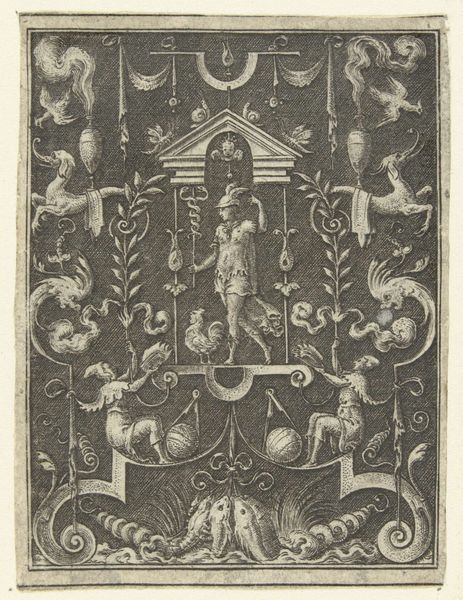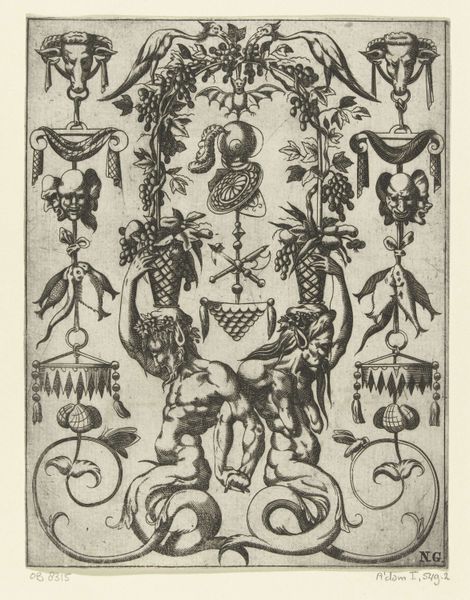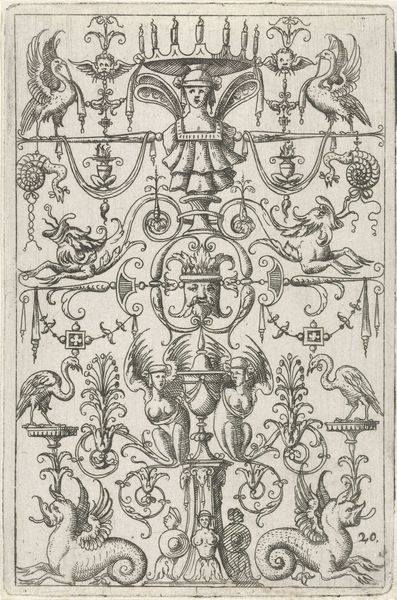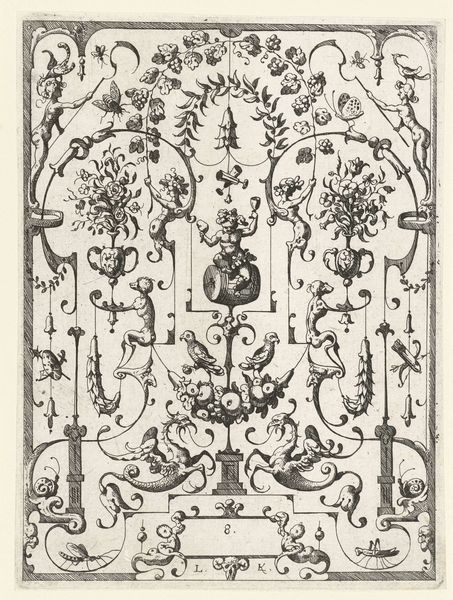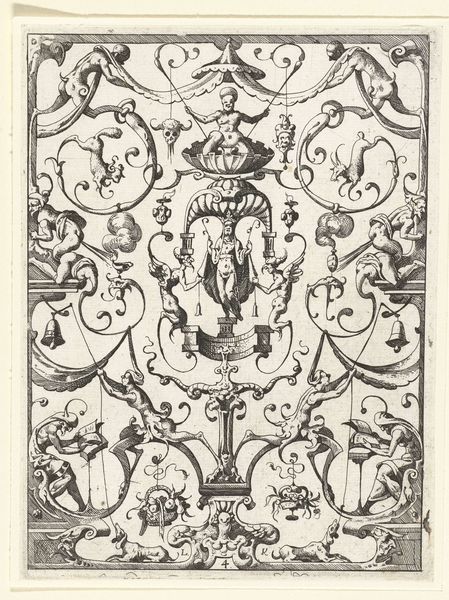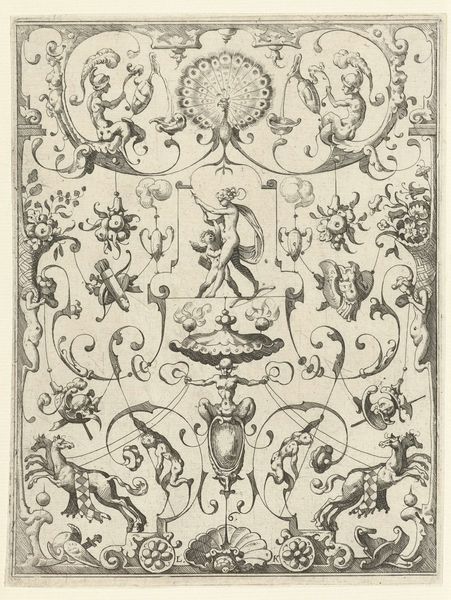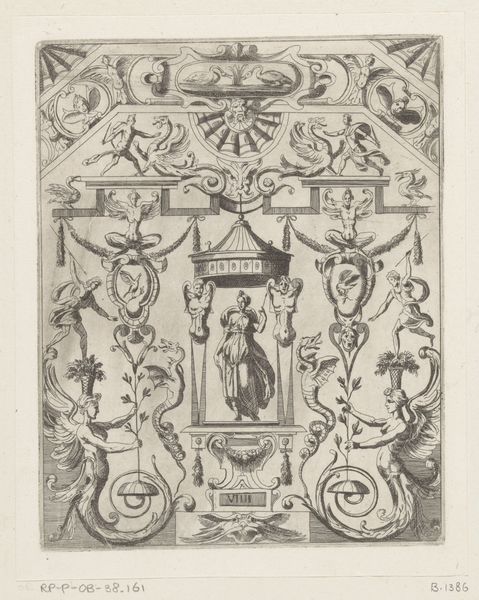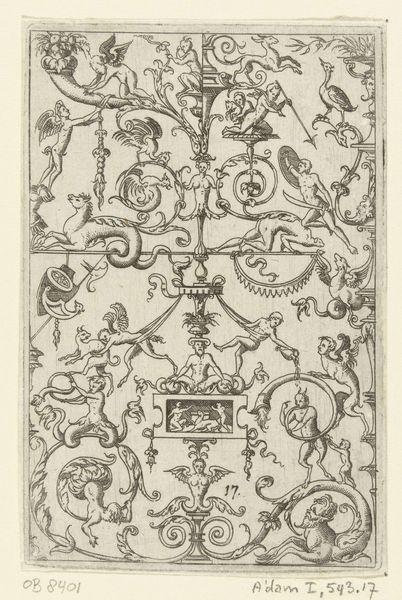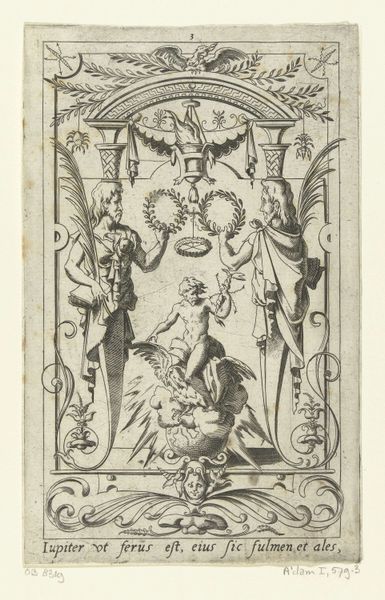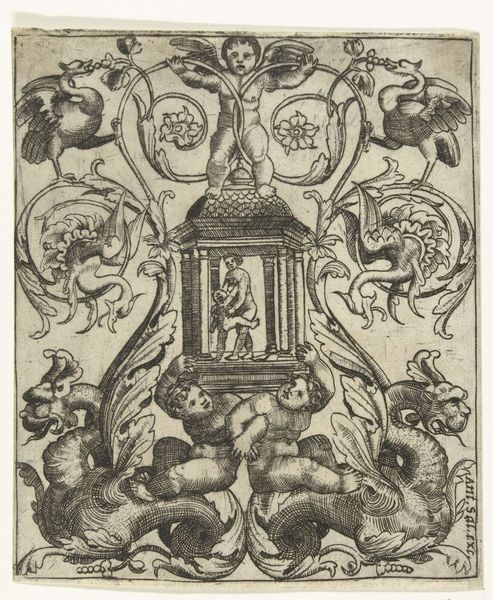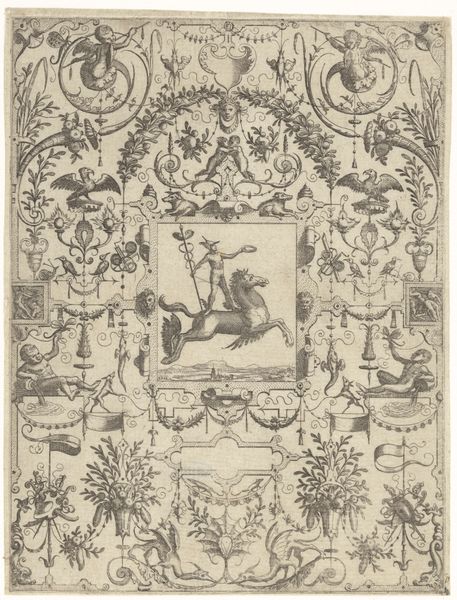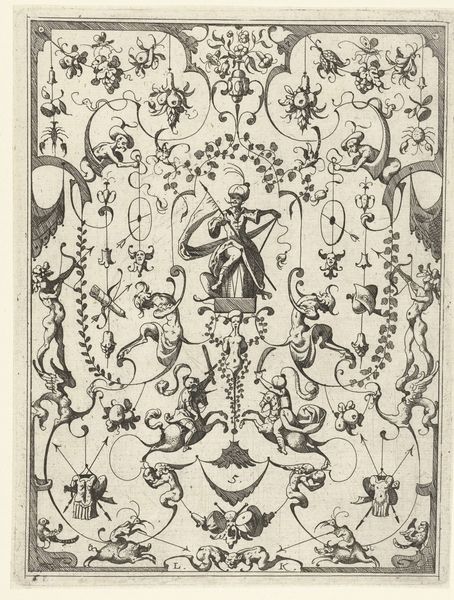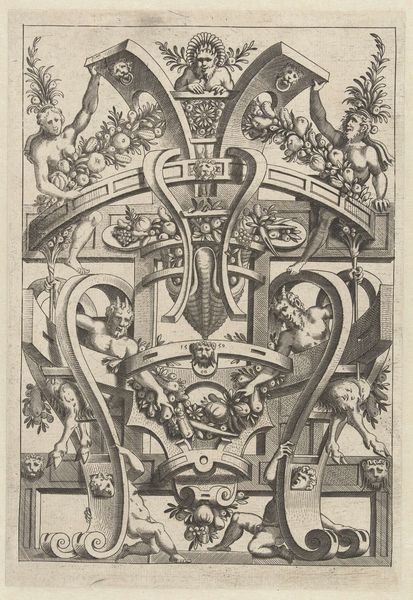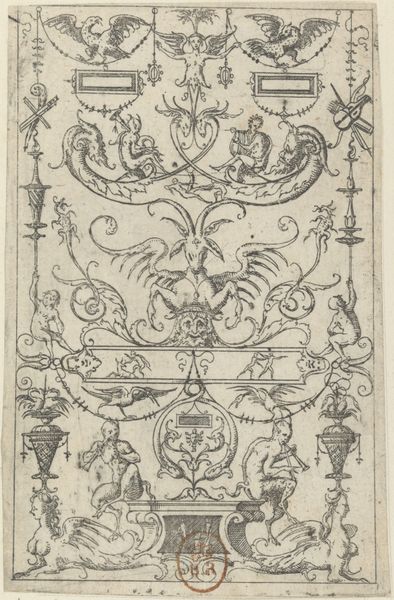
Onderaan zitten twee gevleugelde vrouwen op een dubbele voluut 1535 - 1598
0:00
0:00
anonymous
Rijksmuseum
drawing, print, ink, engraving
#
drawing
#
allegory
#
pen drawing
# print
#
pen illustration
#
pen sketch
#
mannerism
#
figuration
#
form
#
ink line art
#
ink
#
line
#
engraving
Dimensions: height 180 mm, width 140 mm
Copyright: Rijks Museum: Open Domain
This print, of unknown date and authorship, reveals much about the graphic processes that flourished in its time. It's an etching, meaning that the artist coated a metal plate with a waxy ground, drew an image into it with a sharp needle, and then bathed the plate in acid. The acid bit into the metal, creating recessed lines that would hold ink. The plate was then wiped clean, leaving ink only in the etched lines, and printed onto paper. The visual texture here—all those fine, consistent lines—testifies to the etcher's skill. You can almost feel the burr of the needle cutting through the ground. The image has a social significance, too: prints like this circulated widely, making visual ideas available to a broad public. It collapses boundaries between design, craft, and art. This was a mechanized, proto-industrial process, allowing for the mass production of images, and therefore, ideas.
Comments
No comments
Be the first to comment and join the conversation on the ultimate creative platform.
